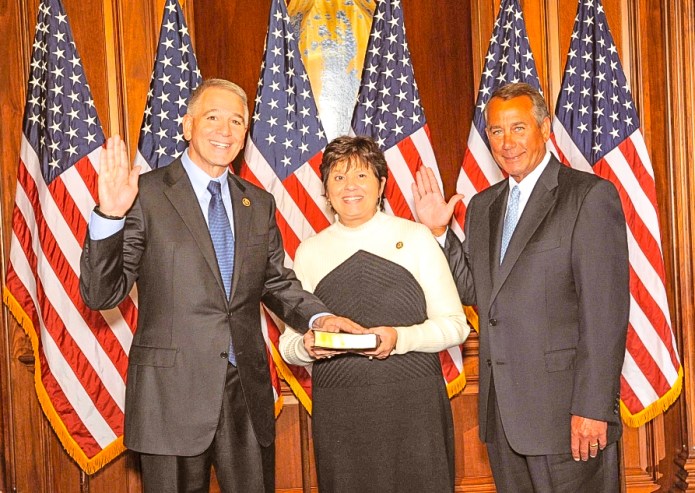Before he ran for Congress, Ralph Abraham had already established himself as a statewide leader. According to data from the Centers for Medicare and Medicaid Services, in 2013 (CMS), among the more than 700 family practice physicians in Louisiana, Abraham wrote more prescriptions and refills for opioids to patients covered by Medicare Part D than all but ten other doctors in the state.
All told, Abraham filed 1,856 opioid claims with CMS, nearly three times the population of the town in which he both practiced medicine and owned a pharmacy.
Interpreting the data
The data sheds additional light on the congressman and current gubernatorial candidate’s medical practice, though, importantly, it only includes patients who were enrolled under Medicare Part D. To be eligible for the government benefit, a person must be 65 or older or have a qualifying disability that already had provided them with 24 months of Social Security Disability Insurance.
During the past two weeks, the Bayou Brief has reported extensively on Rep. Abraham’s ownership interests in two rural pharmacies that ordered 1.5 million doses of opioids between 2006-2012, according to information recently made public by the Drug Enforcement Agency. Although our reporting has attracted national attention, no other major Louisiana news publication has covered the Republican candidate’s record as a physician and pharmacy owner in either prescribing or profiting from the dispensing of opioids.
Opioid Claims
This report is the first time any specific information about Abraham’s opioid prescriptions has been shared publicly. CMS began tracking opioid claims in 2013, which means it does not overlap with any of the data the Bayou Brief has previously reported. It also does not provide the names of pharmacies that filled prescriptions; indeed, CMS notes it cannot guarantee a prescription was actually filled, only that the prescribing physician claimed to have written one.

All told, he prescribed opioids to 400 of his 955 patients enrolled in Medicare Part D. According to the most recent Census estimate, approximately 3,400 people 65 or older live alongside Abraham in Richland Parish. The year before he was elected to serve in Congress, he wrote prescriptions for opioids to the equivalent of more 10% of the parish’s Medicare eligible population or more than half of the entire population of Mangham, the town where his clinic and one of his two pharmacies were located.
To be sure, CMS does not calculate a physician’s “opioid prescriber rate” based on the number of patients who receive prescriptions against the total number of patients (in 2013, 41%); rather, its rate is calculated based on the total opioid claims divided by the total number of claims and then multiplied by 100. In 2013, Abraham’s opioid prescriber rate was 5.88%, which was about a point higher than the average among family practice doctors nationwide. So although two out of five Medicare Part D patients he treated received prescriptions for opioids, Abraham had made so many claims in total, the second most of the physicians listed in the table above, he maintained a relatively average rate.
Even while campaigning
The following year, while he campaigned for Congress and publicly championed name-brand opioids on the trail, including once during a debate televised on C-SPAN, Abraham still managed to file 1,286 opioid claims for 343 different patients with CMS. While that may have dropped him from his 11th place ranking, it wasn’t by much.
Incidentally, the man who filed more opioid claims with Medicare than any other family practice physician in Louisiana, Dr. Adrian Talbot of Slidell, also ran for office in 2014, unsuccessfully seeking to become the coroner of St. Tammany Parish. Talbot had been endorsed by St. Tammany’s Republican Parish Executive Committee and had emphasized his work in treating patients with substance abuse disorders.

CMS provides data from the years 2013 to 2018, which means we can examine the extent to which he truly “ended” his medical practice. The truth, at least based on Medicare data, seems to be that while Ralph Abraham never truly stopped practicing medicine, he has dramatically scaled back, though there’s no doubt he is continuing to practice in a new clinic in Rayville.
Last year, 2018, he filed 16 opioid claims for 15 patients.But he had still earned as much as $50,000 from his new clinic and as much as $100,000 from his pharmacy in Mangham.
